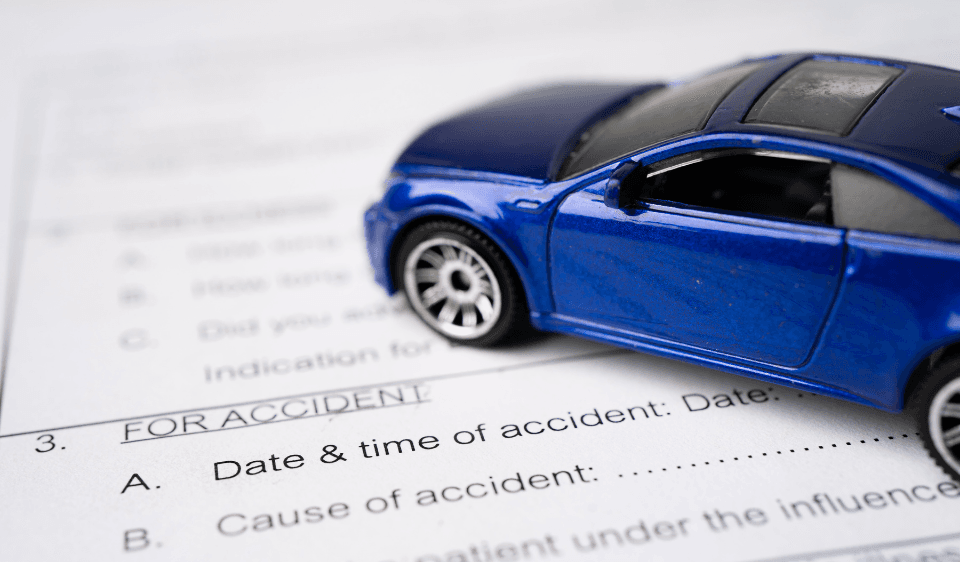The details you compile immediately following the accident can substantially influence your chances of receiving remuneration for medical costs, property damages, emotional distress, and other related losses. This guide will outline the crucial post-accident documentation you need to collect to strengthen your claim.
The Importance of Post-Accident Documentation
Documentation serves as the foundation of your personal injury claim. The evidence you gather can strengthen your case and help you establish liability and the extent of your damages. Insurance companies, legal professionals, and the courts rely heavily on well-organized, clear, and thorough documentation to evaluate and settle claims. Here's why post-accident documentation is crucial:
Establishing Liability
Collecting proper documentation can aid in determining liability for the accident, a crucial aspect in ascertaining which party should be accountable for compensating your damages.
Proving Damages
Thorough and precise documentation plays a pivotal role in substantiating the full scope of your losses, comprising medical costs, property damage, lost earnings, and emotional distress.
Negotiating with Insurance Companies
When dealing with insurance companies, strong documentation can lead to fairer settlements. When presented with compelling evidence, insurers are more likely to agree to reasonable compensation.
Supporting Legal Claims
If you must pursue a personal injury lawsuit, thorough documentation is crucial for building a strong case to present in court.
What to Collect Immediately After a Car Accident
Contact Information
Gather comprehensive contact information, such as names, addresses, phone numbers, and email addresses, for all individuals implicated in the accident. This includes drivers, passengers, pedestrians, and any witnesses. Statements from witnesses can be particularly invaluable in establishing fault.
Insurance Information
Obtain insurance details from other drivers involved in the accident. This includes their insurance company name, policy number, and contact information.
Photographs and Videos
Utilize your smartphone or camera to capture photographs and videos of the accident site, any vehicle impairment, property harm, road conditions, traffic signs or signals, and any apparent injuries. Visual evidence can be highly persuasive in illustrating liability and the extent of damages.
Accident Details
Write down a detailed description of how the accident occurred. Include factors like date, time, weather conditions, and traffic conditions. Diagrams can also help illustrate the accident's dynamics.
Police Reports
If the authorities are present at the scene of the accident, it's essential to request a copy of the police report. This official document often contains valuable information about the accident's circumstances and may include statements from witnesses and the involved parties.
Medical Records
Even if your injuries after a car accident seem minor, it is crucial to seek immediate medical attention. Ensure that you obtain copies of medical records, test results, prescriptions, and treatment plans, as these documents serve as essential evidence of your injuries and related expenses.
Statements and Notes
Document any statements made by involved parties or witnesses. Also, maintain a personal journal to record your pain levels, emotional distress, and the accident's impact on your daily life.
Property Damage Records
If your vehicle or personal property was damaged in the car accident, keep records of repair estimates, invoices, and photographs of the damage.
What to Collect in the Days Following the Accident
In the days immediately following an accident, it's crucial to collect specific types of information and documents that can serve as the foundation for your personal injury claim. This includes gathering the contact details of all parties involved, obtaining witness statements, taking photographs of the accident scene and damages, securing the police report, and seeking immediate medical attention. The information you collect during this critical period can be vital in establishing liability and ensuring you have the evidence needed to support your claim effectively.
Witness Statements
If you could not gather witness statements at the scene, contact witnesses and ask them to provide written or recorded statements regarding what they observed.
Communications
Save all written communications related to the accident, including emails, text messages, and letters from insurance companies, healthcare providers, or the at-fault party.
Expense Documentation
Keep records of all expenses related to the car accident, such as medical bills, prescription, transportation, and receipts for any out-of-pocket expenses.
Loss of Income
If your injuries prevent you from working or result in lost wages, document these losses by maintaining copies of pay stubs, tax returns, or statements from your employer.
Continuing Medical Treatment
If your injuries require ongoing medical treatment, continue to collect medical records, bills, and notes from healthcare providers.
Tips for Collecting Effective Post-Accident Documentation
Effectively documenting the aftermath of an accident is essential for a successful personal injury claim. To maximize the value of your documentation, consider these tips:
Be Thorough
Don't underestimate the importance of detail. The more comprehensive your documentation, the stronger your claim.
Act Promptly
Collect information as soon as possible after the accident while memories are fresh and evidence is readily available.
Use Technology
Smartphone cameras and note-taking apps can be invaluable tools for collecting and organizing evidence.
Keep Everything Organized
Maintain a dedicated folder or digital file where you store all relevant documentation. Label documents clearly for easy reference.
Consult an Attorney
Consider consulting with a car accident attorney who can guide you on the specific documentation needed for your case and ensure that you follow the correct procedures.

Maintaining Effective Post-Accident Documentation
Collecting essential information immediately after an accident is crucial, but your efforts shouldn't end there. Maintaining and organizing this documentation plays a significant role in ensuring that your claim proceeds smoothly and that you have the evidence needed to support your case. Here, we delve deeper into each aspect of maintaining effective post-accident documentation:
Document Preservation
Preserving your collected documentation is as important as gathering it in the first place. To safeguard your records:
Digital Backups
Create digital backups of all physical documents. Scan paper documents or take clear, high-resolution photos of them. Store these digital copies on secure cloud services or external hard drives. This redundancy can protect your records in case of loss or damage.
Organized Filing
Maintain a well-organized physical or digital filing system for your documentation. Arrange documents by category (e.g., medical records, communication with insurance companies) and date. This system ensures that you can quickly locate specific documents when needed.
Document Retention
Keep all documentation of your accident, even if you think it's not immediately relevant. What may seem unimportant now could become crucial evidence later in your case.
Email Correspondence
Create a dedicated folder in your email account for accident-related messages. Save both sent and received emails, as they may contain valuable information.
Phone Calls
Keep notes on phone calls related to your accident. Include dates, times, names of individuals you spoke with, and a brief conversation summary.
Written Correspondence
Maintain physical copies or digital scans of all written communications, including letters and notices from insurance companies, healthcare providers, and the at-fault party.
Continue Collecting Medical Documentation After Your Car Accident
Continued medical documentation is a critical aspect of post-accident record-keeping. After an accident, maintaining comprehensive medical records ensures that your injuries, treatment, and recovery process are well-documented. This includes recording all medical appointments, noting recommended treatments or referrals, keeping a log of prescribed medications with dosages, schedules, and any adjustments, and requesting and preserving periodic progress reports from your healthcare providers. These records support your personal injury claim and provide a clear timeline of your medical journey, demonstrating the extent of your injuries and ongoing medical expenses. Effective medical documentation can be instrumental in establishing causation between the accident and your injuries and substantiating the need for compensation to cover your healthcare costs.
In many personal injury cases, ongoing medical treatment is necessary. Ensure that you continue to collect and organize medical documentation:
Medical Appointments
Maintain records of all medical appointments, including dates, times, and locations. Note any recommended treatments or referrals.
Medication Logs
Keep a log of any prescribed medications, including dosages and schedules. This information can demonstrate the extent of your injuries and medical expenses.
Progress Reports
Request periodic progress reports from your healthcare providers. These reports can help document the course of your recovery and any ongoing issues.
Expense Tracking After Car Accident
Tracking expenses diligently is a crucial part of documenting post-accident information. To strengthen your personal injury claim, it is vital to maintain meticulous records of all accident-related costs. This includes comprehensive documentation of medical bills, prescription expenses, repair invoices for property damage, and any other out-of-pocket costs arising directly from the incident.
Furthermore, keeping a detailed log of mileage for medical appointments or legal visits can be invaluable in supporting claims for travel-related expenditures.
Lastly, if the injuries have resulted in a loss of income due to missed work, continue gathering records such as pay stubs, tax returns, and statements from your employer to demonstrate the financial impact. By thoroughly tracking these expenses, you can provide compelling evidence to bolster your claim and improve the likelihood of receiving rightful compensation.
Accurately tracking expenses related to your accident can be crucial for your claim:
Detailed Records
Record all accident-related expenses, including medical bills, prescription costs, property damage repair invoices, and any other out-of-pocket expenses.
Mileage Logs
If you are required to travel to receive medical treatment or attend legal appointments, maintain a mileage log. This documentation can support claims for travel-related expenses.
Lost Income Documentation
Continue to collect records of lost income if your injuries prevent you from working. This includes pay stubs, tax returns, and statements from your employer.
Consultation with a Car Accident Attorney
While maintaining post-accident documentation, consulting with a personal injury attorney can be invaluable. An experienced attorney can guide what specific information is critical to your case and ensure you follow the correct procedures. They can also help you anticipate any potential legal challenges and navigate them effectively.
Maximizing Compensation and Accountability Through Comprehensive Post-Accident Documentation
Maintaining effective post-accident documentation is an ongoing process which can influence the outcome of your personal injury claim. By preserving your records, organizing communication, continuing to collect medical documentation, tracking expenses, and seeking legal counsel, you can enhance your prospects for a successful resolution. Always bear in mind that thorough documentation can serve as your ally in ensuring that you receive the rightful compensation and that the party responsible for your losses is held accountable.
Stay safe, New York City!

